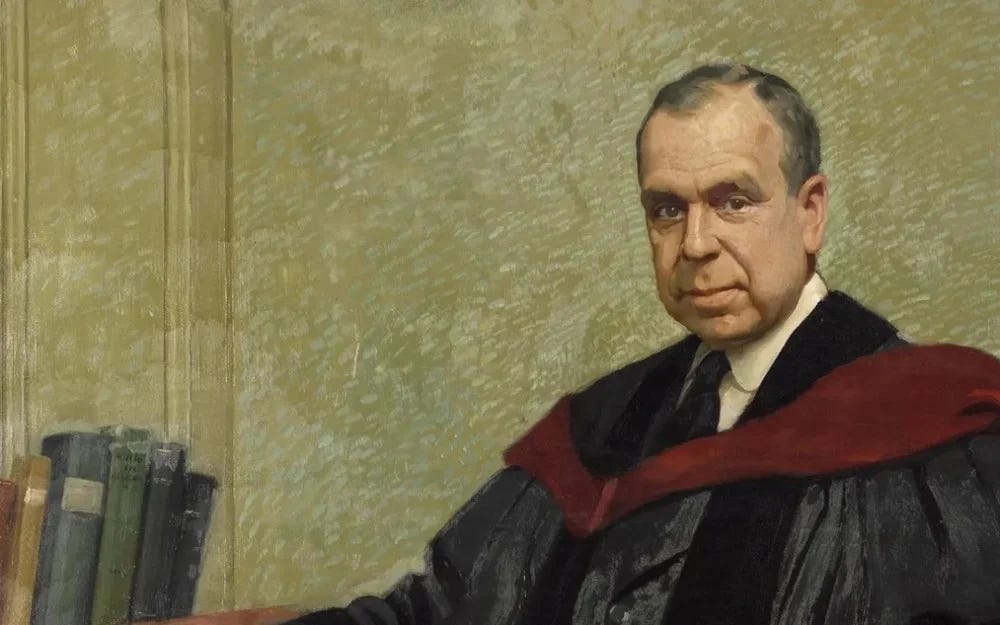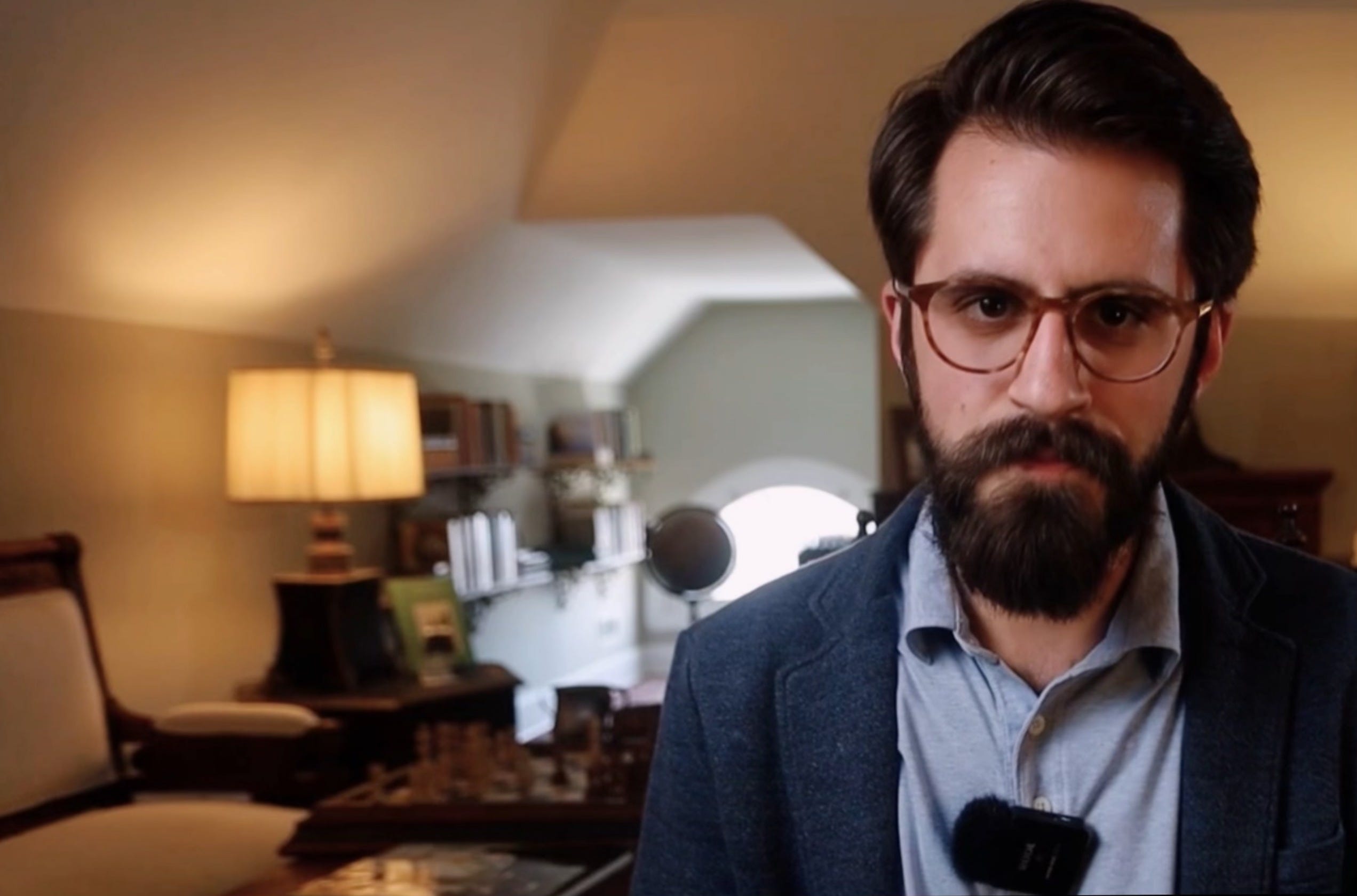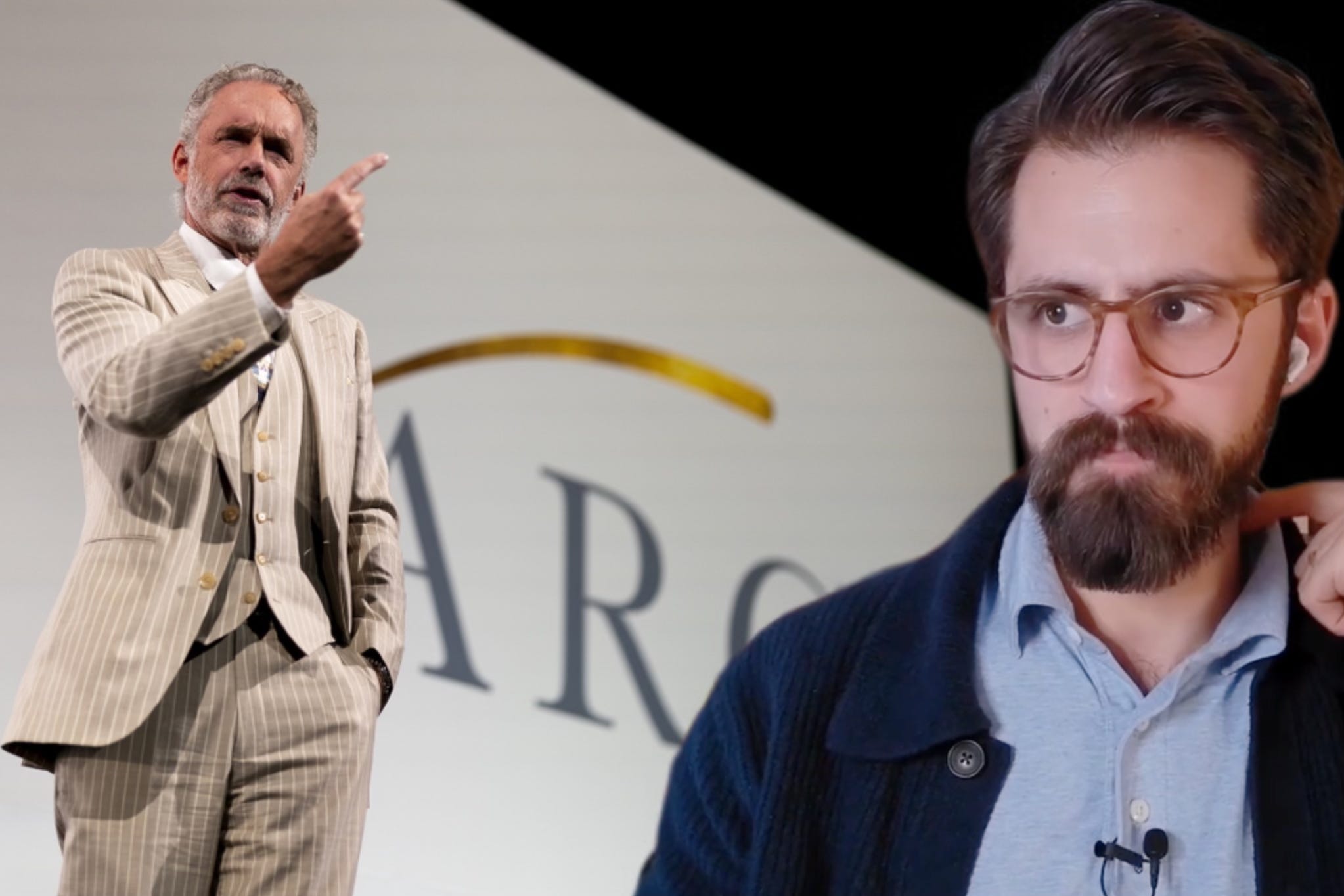Toward a Religious Right
Description
To evangelical ears, this title will seem to read as an attempt to revivify the spirit of Jerry Falwell. And it will be said that his spirit seems alive and very well - too well.
But I have a different audience in mind. In the intellectual circles of the political right, there are many open questions about the direction of the movement, chief among them whether and how religious the right ought to be.
You see, while the popular voting bloc of the Republican party is relatively religious, the intellectual elites of conservatism are less so, and the online avant-garde of the Right is even less so.
I am not arguing that Christians ought to take up the cause of the political right.
In this essay, I am arguing that the intellectual right ought to heed its religious impulse.
Why should the right be religious?
Without a religious impulse, the intellectual Right tends almost inevitably to become a racial movement. And if it is between a religious right and a racial right, then we should choose a religious right.
The Intellectual Right Is Not the Same as the American Political Right
Now this will all sound odd to American ears. The American right is a movement based on race-neutral, libertarian capitalism, plus a dose of American civil religion. It can avoid the charge of racism by appealing to the principles of classical liberalism: freedom of speech, freedom of association, and equality before the law.
In contemporary politics, of course, standing for classical liberalism has begun to code right, and many liberals who would formerly have identified themselves with the left have found themselves more aligned with the American right.
In fact, the alignment of classical liberalism with the Western right has been going on for a long time. Friedrich Hayek was a liberal. And the Neo-conservatives were liberals who had been mugged by reality. The Intellectual Dark Web’s defense of classical liberalism was but the latest iteration.
In contemporary politics, such people are considered to be on the political right.
But in philosophical discussion, someone whose fundamental moral appeals are to principles of classical liberalism is a liberal and not a conservative.
When I address the right, I am addressing those on the intellectual right, from conservatives right-ward, to the radical right. Their fundamental moral appeals are not to neutral, liberal principles but to something more substantive.
What Unifies the Intellectual Right?
Now what unifies the group I am identifying as the intellectual right?
The Right is unified by a commitment to the preservation of a culture, which it perceives as threatened by intentional actors committed to egalitarian and liberal ideologies and by cultural forces beyond human intention including technology and capitalism.
The deep debates on the intellectual right are about the identity and content of that cultural heritage. If we say, “Western civilization,” almost everyone on the intellectual right will be on board. But opinions divide about the relative priority of Christian, philosophical, and classical dimensions of Western civilization.
The deepest divide on the intellectual right is about whether Christianity is the cultural heritage we seek to preserve, or whether Christianity is a precursor to contemporary leftism and wokeism. Christians and their sympathizers, “god-fearers,” accept Christianity as the cultural heritage they seek to preserve. But a secular or neo-pagan, Nietzschean, vitalist right rejects Christianity as but a precursor to contemporary leftist decadence.
For more on the contrast, see Johann Kurtz’s essay, “Choose boldly between Christianity and Vitalism.”
The Christian and Classical Currents of Civilization
Now Christianity is not the whole of the cultural heritage that the Christian Right seeks to preserve. The classical heritage is there as well. Christians are the source of contemporary classical schools, for example.
But how to relate the Christian and the classical is another way to frame the Right’s debate. The vitalist Right favors the classical over the Christian. The Christian right seeks to integrate them.
(There are also facets of the Christian right that repudiate the classical, about which I’ve written elsewhere.)
The Nietzschean right wants to regain the virtues of classical, pre-Christian civilization. While Christianity valorized weakness and suffering, classical civilization celebrated strength and manliness.
In identifying a conflict between Christian and classical thought, Nietzscheans are not wrong. Christ says, for example, “Do you love those who love you? Even the Gentiles do that. But I say to you, love your enemies and do good to those who hate you.”
The Nietzschean right responds, “What is this leftist drivel? Our nations will break down if we do good to those who hate us! We need to insist on particularity and love those who love us and hate those who hate us.”
(It’s called, “the friend-enemy distinction.”)
The Nietzschean Right sees a direct through-line from Christ to contemporary leftism (and wokeism). It wants to depose these and return to the classical affirmation of strength, natural hierarchy, and inequality.
Christian Criteria
Now, while contemporary Christianity is indeed subject to some of the failings of leftism and of slave morality, the Christian Right believes that Christianity can avoid these criticisms. They believe that there are both resources within the Christian tradition for doing so and that Christianity can accept resources from the outside for doing so.
In these webpages, I have made both arguments: On the one hand, I have argued that some of the very features that make evangelicals evangelicals lead us to be ineffective in public action. Our preference for piety over competence is one example. I have pointed to Christ’s parable of the dishonest manager as an example of shrewdness as a Christian virtue.
At the same time, I have encouraged Christians to look outside of their own Scriptures for knowledge about the world, to science, philosophy, and common human experience. This will include recognition of the classical tradition, of Stoicism, Epicureanism, and even aspects of classical and contemporary vitalism as sources of wisdom.
One of the reasons I am able to adjudicate between different facets of the Christian tradition is that I am a Christian. When someone tells me that Christianity leads to x, I don my theologian cap and examine x as a Christian theologian. If I find it wanting, by the criteria of Christian theology, then no number of historical examples or arguments can persuade me that Christianity leads to x. X is a theological error.
For example, many - now from the left - will argue that Christianity leads to homophobia. Having considered a Christian theology of same-sex desire, I can argue strongly that Christianity does not teach homophobia, even if many Christians have taught it and exhibited it.
In fact, this is one of the main reasons why I think the right needs religion. It needs to utilize the resources of religious morality to distinguish between right and wrong. It needs to be able to follow in the path of a Bonhoeffer or a Niebuhr and say, “While many Christians defend x, x is incorrect by Christian criteria.”
If we conclude that the whole of Jewish and Christian religion has been a failure because its secularized step-children have, we strip ourselves of many of the resources of moral thought.
The Corruption of the Best Is the Worst
I want to appeal to philosopher Ivan Illich to make this point. (Not to be confused with Tolstoy’s character Ivan Ilyich.) Illich argued forcefully that contemporary society is a secularization of Christianity. The entire schooling system Illich identified as a secularization of the process of catechesis and discipleship, universalized to the whole society and backed up by force.
But Illich did not consider this to be evidence against Christianity. Rather, he thought it provided evidence of a principle: “The corruption of the best is the worst.” Christianity is the best thing. Modern secular progressivism is a step-child of Christianity, yes, but it is the worst thing for that very reason.
Likewise, the moral idealism and egalitarianism of Christianity is a beautiful thing. When stripped of love for the natural and fallen world, it becomes a deadly thing in the hands of idealists and communists. Their idealism justifies any wrong in the name of bringing heaven here upon earth. More deaths were committed in the name of this corruption o
























